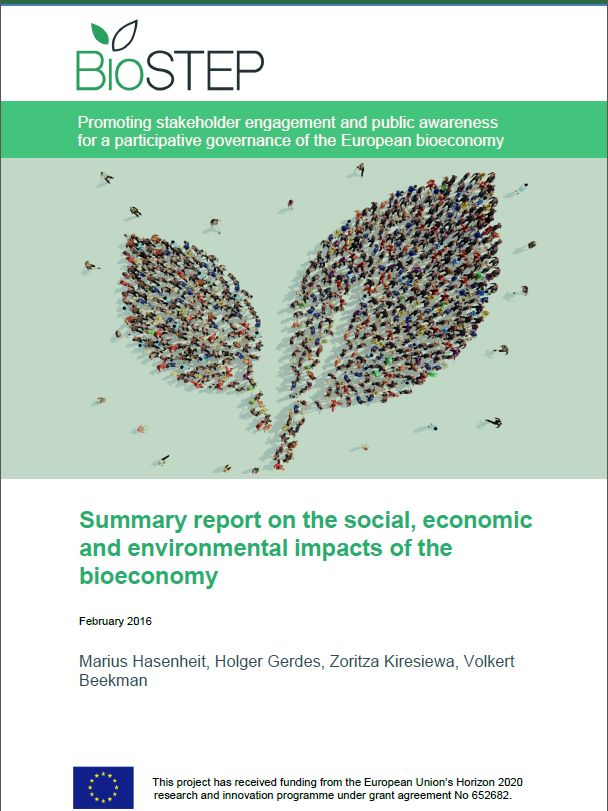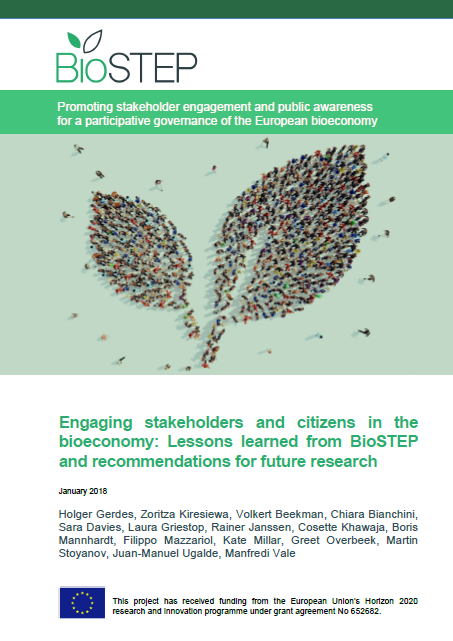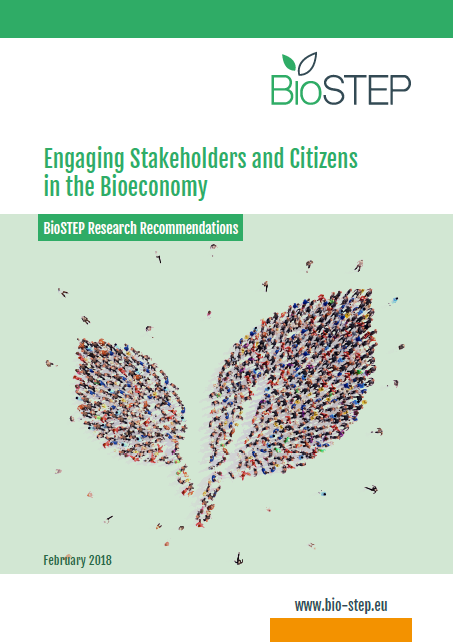Summary Report on the Social, Economic and Environmental Impacts of the Bioeconomy
Promoting stakeholder engagement and public awareness for a participative governance of the European bioeconomy
- Publication
- Citation
Hasenheit, Marius; Holger Gerdes; Zoritza Kiresiewa et. al. 2016: Summary Report on the Social, Economic and Environmental Impacts of the Bioeconomy. Promoting stakeholder engagement and public awareness for a participative governance of the European bioeconomy. Berlin.
This BioSTEP document builds on the previous Deliverable 2.1 which collected information about the impacts of bioeconomy-related products in a database. Rather than attempting to exhaustively list the whole plethora of products and processes in the bioeconomy, the database presents a taxonomy of the main product categories, production processes and types of feedstock in the bioeconomy as well as some salient sustainability impacts and governance issues. The document is available for download.
The Summary Report on the Social, Economic and Environmental Impacts of the Bioeconomy explains that the bioeconomy encompasses a broad range of activities, situated along a multitude of different value chains, each including suppliers, producers, distributors, and purchasers. It shows that the social, economic and environmental impacts of bioeconomy activities are thus not always limited to the place of production of a bio-based product (e.g. within a regional bioeconomy cluster), but can reach back to the location of biomass provision/production and may affect people, regions and countries in different ways.
The impacts of Bio-based products
Bio-based products and processes may entail (intended or unintended) impacts on human society and the environment. These impacts may occur along the entire value chain of bio-based products and might be linked to the production of biomass, to biorefinery (and related) processes, and to the actual characteristics and effects of the new, bio-based products. One single product or process can have several impacts, which are also influenced by factors, which are not related to the product or process.
The broad spectrum of identified bioeconomy impacts highlights that the involvement of different stakeholder groups and citizens in the development of strategies promoting a bio-based economy is crucial. Specifically, the following aspects reflect the urgency to develop a broad inclusion of both interested and affected stakeholders and citizens:
- Opportunities for stakeholder engagement and public engagement in the governance of the bioeconomy occur particularly at the regional level, where biorefinery activities materialise in concrete processing plants.
- Effects on rural development depend highly on whether the bioeconomy is ‘mainstreamed’ and a broad part of the population benefits from it.
- Interacting with a broad group of stakeholders and different ‘publics’ is critical to increase mutual understanding and address value conflicts that may be difficult to solve.
- Making better use of good practices: There is already evidence on the engagement of citizens and SMEs in waste management, which is significant for the use of waste-based resources.
- A broad cooperation between decision-makers, scientists, civil society and NGOs is necessary to ensure a holistic approach for an inclusive, sustainable and ambitious bioeconomy.
Key recommendations on how to manage the negative impacts of specific bio-based products include the promotion of standards that ensure the sustainable production of imported biomass and changes to the current policy framework.








